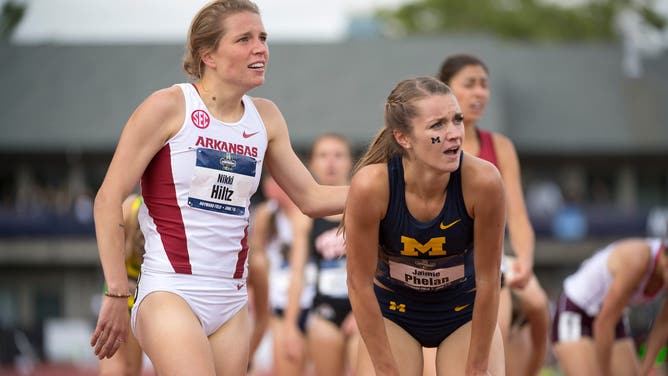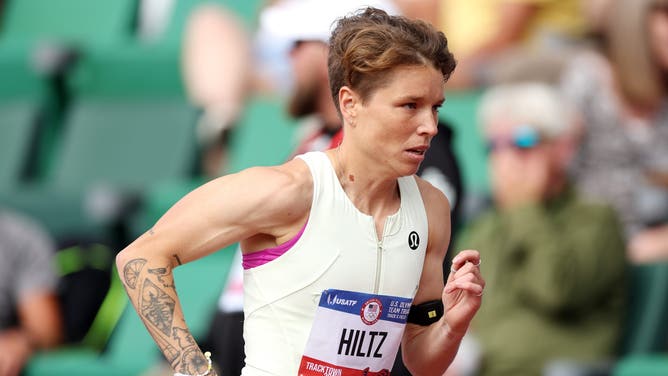'Non-Binary Transgender' Female Athlete, Nikki Hiltz, Qualifies For U.S Olympic Team
Nikki Hiltz, who identifies as 'non-binary transgender,' made the United States Olympic track team after winning the 1,500-meter race over the weekend.
Hiltz is a biological female who describes herself as "gender-fluid." The track athlete came out as transgender in 2021, but said her gender fluctuates daily.
"Hi I’m Nikki and I’m transgender. That means I don’t identify with the gender I was assigned at birth. The word I use currently to describe my gender is non-binary," Hiltz said.
"The best way I can explain my gender is as fluid. Sometimes I wake up feeling like a powerful queen and other days I wake up feeling as if I’m just a guy being a dude, and other times I identify outside of the gender binary entirely."
What's fascinating about Hiltz is that she clearly identifies as a woman when she competes in athletics against other women. Apparently, those days when she wakes up feeling like "a guy being a dude" never include race day.
Which is perfectly fine, to be clear. Hiltz is a biological female competing against women, which is how it should be. Unless, of course, she's taking hormones that afford her an advantage. But that doesn't appear to be the case here.
Riley Gaines, host of the OutKick podcast "Gaines for Girls" and one of the most influential pro-woman voices in the country, weighed-in on Hiltz's inclusion on the United States Olympics team.
The problem with this is that the left-wing radicals want everyone to be able to compete against the gender with which they most closely identify.
If Hiltz was born a woman, but considers herself transgender, then it would seem fair to assume that the gender with which she mostly closely identifies is male.
Except, she knows she cannot compete against males on a racetrack, so she hangs on to the female identity for the times that it serves her.
When Nikki Hiltz competed in college, at Arkansas, she had a more feminine appearance. But she elected to transition to a more masculine appearance.

Nikki Hiltz (left) competes for Arkansas during the 2017 Division I Women's Outdoor Track & Field Championship.
(Jamie Schwaberow/NCAA Photos via Getty Images)
There's nothing wrong with that, but it does bring into question her intentions about a gender transition that only seems to kick in when she's not running races.

Nikki Hiltz competes during the 2024 U.S. Olympic Team Track & Field Trials in Eugene, Oregon.
(Christian Petersen/Getty Images)
The problem is that the female category is starting to look like a "catch all," as Gaines described. Biological females who identify as transgender compete against women. Biological males who identify as transgender compete against women.
That's not the point of separating men's and women's sports. People don't get to choose who competes in women's sports. Biology takes care of that for us.